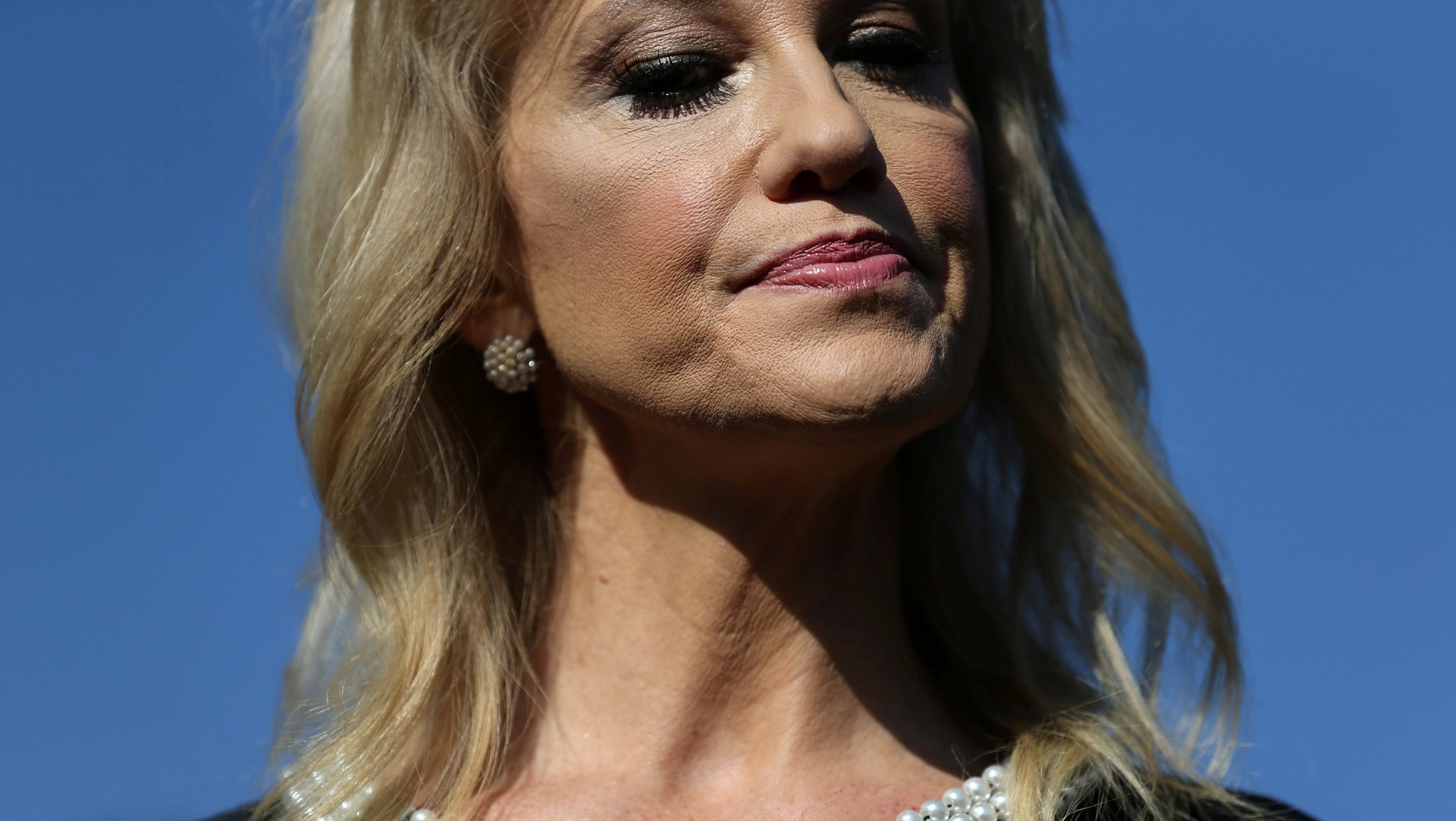What exactly is the Hatch Act, and how did Kellyanne Conway break it?
White House adviser Kellyanne Conway is one of the few in the White House who’s been around since US president Donald Trump’s 2016 campaign. Two and a half years later, however, her time may finally be up.


White House adviser Kellyanne Conway is one of the few in the White House who’s been around since US president Donald Trump’s 2016 campaign. Two and a half years later, however, her time may finally be up.
In a letter to Trump, the Office of the Special Counsel (OSC) urged the president to remove Conway from office. The agency, which oversees the application of laws pertaining to the rights and duties of federal employees, said Conway has made numerous statements in support of Trump’s presidential campaign, and other statements that were critical of democratic candidates.
That is all a violation of the Hatch Act, the office said.
The Hatch Act is a 1939 law designed to “prevent pernicious political activities.” It prevents employees of the executive branch from making statements that intend to influence the results of an election. While the president, the vice president, and a few other high-level executive officials are exceptions, other federal employees must refrain from such politicking while in their official role.
While federal and federally-funded workers are allowed to participate in nonpartisan elections, express opinions on referendums, register with a party, and even campaign for candidates as private citizens, they cannot use their official position to raise funds, run for public office, or engage in political promotion.
Lawmakers originally passed the Hatch Act to prevent employees of a once powerful New Deal-era agency, called the Works Progress Administration, from making public statements in support of then-president Franklin D Roosevelt—and other progressive democrats—in exchange for appointments and employment. The goal was to maintain separation between political campaigning and the administration’s employees.
Through the years, legislators have amended the Hatch Act to include different forms of messaging and political participation. In 2012, for instance, lawmakers clarified that local and state employees are allowed to participate in partisan political races unless their salaries are fully paid from federal funds. A 2016 update clarified the ways in which the act applies to the use of contemporary communications methods, including social media accounts.
The OSC found that, speaking in her official capacity, Conway directed personal and political criticism toward several presidential hopefuls, including former vice president Joe Biden, Massachusetts Sen. Elizabeth Warren and New Jersey Sen. Cory Booker.
Trump administration employees are pretty familiar with the Hatch Act. Since 2017, the OSC has warned several of them for breaching the act, including former US ambassador to the United Nations Nikki Haley and Melania Trump’s communication director, Stephanie Grisham.
Previous administrations also had issues with the Hatch Act, though on fewer occasions than the current.
The OSC has found Conway guilty of violating the Hatch Act at least once before, for comments against Roy Moore’s opponent in the 2017 Alabama senate race.
“Her actions erode the principal foundation of the democratic system—the rule of law,” the OSC wrote in its letter to Trump.